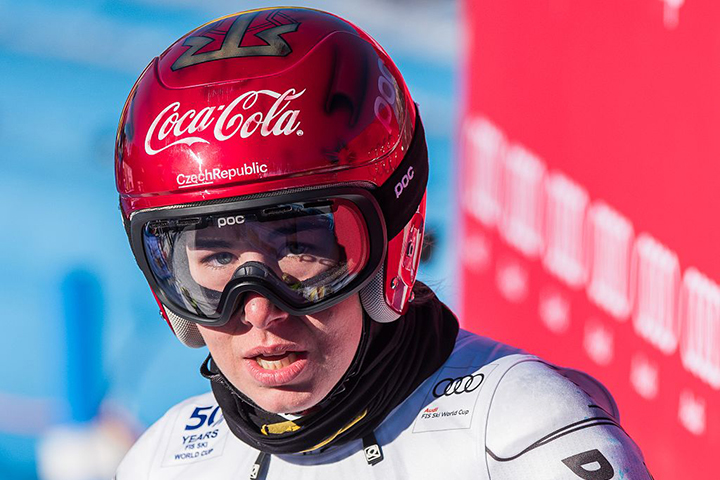Ester Ledecka won gold in the Olympic women's super-G, despite the fact that she primarily considers herself a snowboarder.


Ester Ledecka won gold in the Olympic women’s super-G, despite the fact that she primarily considers herself a snowboarder. The Olympics were abuzz as Ledecka demonstrated astonishing proficiency in two sports that can appear alike but in practice are dramatically different.
The Washington Post covered Ledecka’s win, ultimately declaring it, “one of the greatest upsets in the history of Olympic skiing.” Ledecka beat Austrian star Anna Veith by one one-hundredth of a second to snatch the gold. Upon completing her run, she was so shocked at her own victory that she could only stare at the score board.
The awe surrounding Ledecka’s victory shouldn’t belie her undeniable athletic talent and commitment to focused training. She works with two separate coaches—one for each sport—and splits her time between the two so as to immerse herself in each particular world. Lyndsey Vonn, the vaunted American skier, admitted “I wish I had as much athleticism as she does to be able to win at two sports in the same Olympics.”
Justin Reiter, Ledecka’s snowboarding coach, says of her earned prowess, “It takes a lot of effort to become a professional skier . . . It takes a lot of effort to become a professional snowboarder. And she does both with ease.”
Reiter credits her disciplined mastery as one of the keys to her success: “She can replicate moves over and over again far better than [anyone] I’ve ever seen.” In this sense, Ledecka provides an outstanding model of practices for mastery, where repeated actions become automated and one knows how to act well in any given situation.
He adds that Ledecka starts out by processing new skills slowly, but steadily and consistently moves herself to a point where any turn or jump is simply a reaction, as though it is second nature.
University of Lisbon professor and former Institute for Advanced Studies in Culture Fellow Bill Hasselberger suggests that skills like Ledeka’s can teach us how a person becomes virtuous. “‘Skill models of ethical virtues offer a promising way of explaining the distinctive kind of ethical knowledge or understanding had by a virtuous person: virtues are akin to practical skills (in carpentry, sailing, musicianship, [skiing and snowboarding,] etc.) in that both are experience-based capacities of agency that yield non-codifiable knowledge of how-to-act-well in particular circumstances.”
Ledecka has, by deliberate practice, mastered how-to-act-well while racing down a snow-covered hill. Despite their vast differences, she’s mastered doing it on skis and on a snowboard, and this could solidify her place in the Olympics’ history book.
For kids watching at home, the path to mastery—and virtue—is one of slow, deliberate practice that builds up to race speed.
In a fascinating Getting Smart podcast, Gene Kerns, author of Unlocking Student Talent: The New Science of Developing Expertise, discusses how deliberate practice is at the core of student formation.